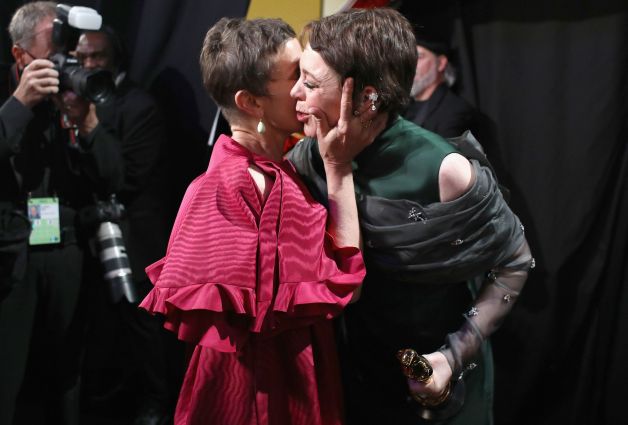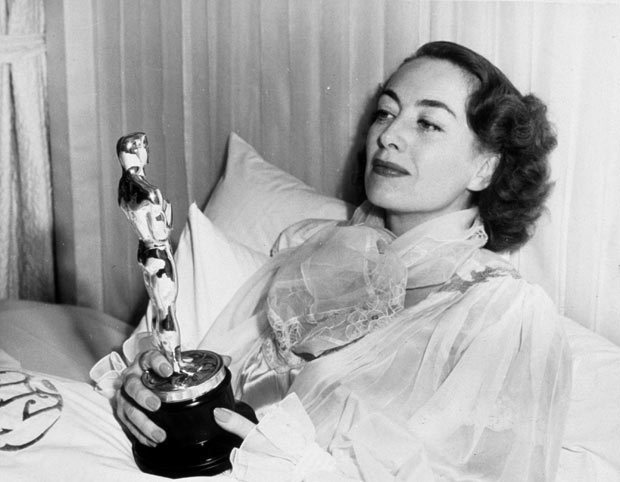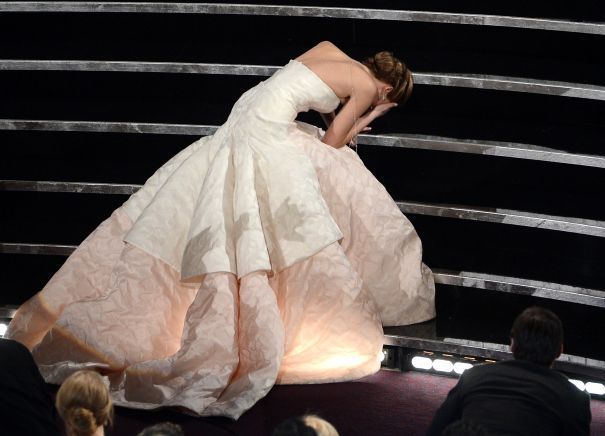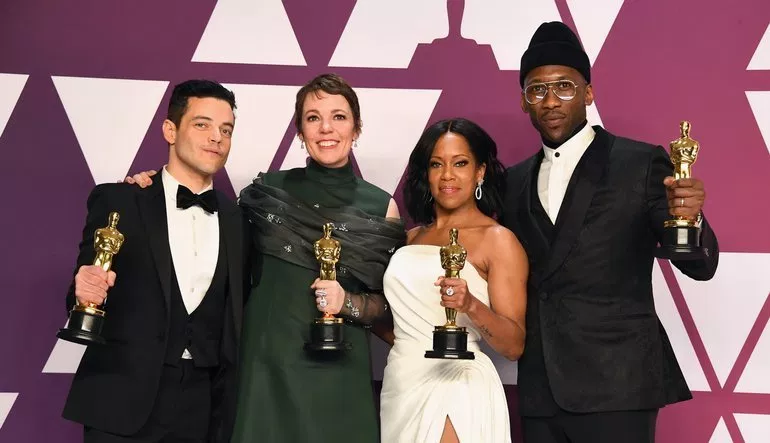Eve Babitz, a bratty genius L.A. writer and ‘70s It Girl, wrote in her essay “The Academy” from her 1974 collection Eve’s Hollywood that “The Academy of Motion Picture Arts and Sciences is so corny, they’re the kiss of death.” When I stumbled upon her essay this year, the weekend of the 91st Oscars, I was so tickled that the Oscars have basically always been a source of exasperation for more than 45 years.
I (unlike, I assume, Babitz) have been a devoted awards season follower and Oscars watcher since I was a teenager, which coincided with when I started to approach film in the same way as I approached literature and began in earnest to analyze films as texts. The Oscars themselves became a sort of text for me as well; I enjoyed watching the Oscars to analyze and create larger critical theories about the film industry writ large. For someone like me, and I imagine most people reading this article, the awards were a validation of my love for film, even when the movies I loved weren’t awarded.

However, this year I made the decision to skip the Oscars for what essentially amounted to mental health reasons. A few years ago, suspiciously right around when I started writing about film as a career, I started to take the Oscars’ more disappointing results extremely personally. I felt that I was a thoughtful movie-goer; I thought deeply about each movie I saw, juxtaposed them and synthesized larger trends and themes, and questioned what should be awarded based on the context of what should stand the test of time. And because I didn’t fit the demographics of the Academy of Motion Picture Arts and Sciences (AMPAS) voters, over the years I found myself becoming increasingly frustrated with their choices. Mostly because their winners didn’t seem to correlate with what I considered to be the best; they often went with movies that were fine but boring—safe choices that push the boundary of film art in any way. Using the Oscars as the ultimate metric of quality left me feeling irritable and disillusioned about movies.
Worst of all, the awards weren’t fun anymore. I would walk away from each ceremony enraged. It got to the point where I was positive that if Three Billboards Outside Ebbing, Missouri won over Call Me By Your Name or Get Out, I believed it would be the end of cinema.
But it wasn’t the end of cinema. In fact, basically, everyone that I wanted to be awarded continued to put out great work and (in all likelihood) will probably continue to make movies. (And does anyone even think about Three Billboards besides me, someone who will follow Frances McDormand to the ends of the Earth?)
This is not to suggest that the Oscars are meaningless. The Oscars and other award shows are important, particularly to the people and studios that receive the awards, helping them stand out in an increasingly saturated film market and book more work in the future. For example, I imagine Barry Jenkins was able to make If Beale Street Could Talk in part because Moonlight won Best Picture two years ago. An award does give you a certain caché in Hollywood. But I imagine it wasn’t the sole reason Jenkins was able to make Beale Street. And I imagine Beale Street’s snub doesn’t mean he’ll never work again. He is one of our greatest living film artists—his work stands on its own merits.
While nominee diversity has increased in recent years, there is still a long way to go in terms of bringing the work of marginalized artists, be it directors, below-the-line creatives, or actors, to the forefront. And relying on the Oscars to nominate and award diverse talent is a gamble.
We must, as a filmgoing community, value different metrics of artistic merit and cinematic achievement. In my opinion, making these films accessible (via streaming services and/or wider releases in theaters) and giving them the budgets to be marketed in a much more effective way is the key to making ourselves feel seen in Awards season. While awarding films with Oscars certainly can be a part of this push toward a more diverse and overall more interesting cinema, relying on them to be the sole arbiter of good taste is increasingly ridiculous.

Still, I understand why we feel the need to watch the Oscars. It’s the same reason that we read and write film criticism, tweet, and log our feelings on Letterboxd. Cinema is so personal. We see ourselves—our emotions, our dreams, our fears—projected on the screen. When the movies that speak to us on such a personal level are pushed aside for less well-received movie, we feel that we are not seen, that our voices are not heard. We want to be a valued part of the cinema as an industry. Not insomuch as wanting to be personally awarded (though I definitely have had that daydream of accepting an Oscar for Best Original Screenplay), but to prove that our viewership matters—that our painstaking attention to this esoteric industry moves the needle.
Deciding to skip the Oscars was a part of my effort to stop conflating my personal love of cinema with what gets awarded. It made my favorite activity in the world (watching and thinking about movies) miserable. And for the first time in years, after skipping the Oscars, I didn’t find myself having a crisis of confidence, questioning my love of cinema.
On the Monday after the Oscars, I read the results with resignation. I can’t give up the Oscars completely; I still fill out a ballot for fun. (If anyone cares, I did predict that Green Book would take Best Picture on my Will Win ballot. Predicting the winners based on what I know of the demographics of the AMPAS voting body is my least impressive party trick!) I imagine the people who watched it at the moment were heartbroken. I’ve seen the reactions. But I was, for the first time in years, able to read the results, shrug my shoulders, and move on with my day without completely questioning my love of the movies that didn’t win anything at the Oscars (or those that weren’t even nominated) and the film industry itself. Beale Street was still gorgeous. The Favourite was still my favorite. Cold War still made me weep. Joaquin Phoenix remained incredible in You Were Never Really Here. Sure, they didn’t have statuettes to prove it, but they had cinephiles like you and me singing their praises wherever we could.

Rationally, we understand that walking away without an award doesn’t take away from the performance or film itself, but at the moment, with the celebration we feel is underserved happening on screen before us, it can feel that way. I felt that the only way to avoid that feeling was just to take myself out of the equation completely. But there’s definitely a camaraderie in being upset over the results just as there is camaraderie in mutual celebration. I don’t go on Twitter much anymore, but based on previous Awards Seasons, I imagine Film Twitter was lit up during the Oscars, and I imagine it felt like a community to be so mad amongst other film lovers. As they say, misery loves company. But I am trying to stop being miserable about something I have absolutely no control over anymore. (But if I ever became a voting member of the AMPAS, that’s a different story.)
I’m not saying we should boycott the Oscars. That is too serious a term to throw around lightly. I think of it like this: I don’t watch Modern Family anymore even though I used to. I can appreciate the show for what it is and was, but I’ve just moved on to other sitcoms (speaking of, has anyone seen The Kids are Alright on ABC? It is charming!).
This Oscars Sunday I had cocktails with my friends on the patio of one of my favorite bars on the first gorgeous, sunny (albeit windy) day in Atlanta after weeks of cold and rain and talked about love and life and of course, movies. I made a delicious dinner for myself and my roommate. We laughed through an episode of one of our favorite reality shows, Below Deck. I reread Hilary Mantel’s Wolf Hall and went to bed so supremely happy for the first time in a few weeks.
I loved the Oscars and waited for them as one anticipates Christmas. I miss those days sometimes. But it is so freeing to just put your mind on anything else. But I hope if you’re tired of Academy nonsense like I was that maybe you’ll go share an appetizer with your friends and talk about movies with them instead. It might be the best way to proclaim your love of your snubbed darlings and get more eyes on the work itself. It is definitely less upsetting than being proven right by correctly guessing that Green Book would win Best Picture.
My final and my most petty, point for being against watching and putting too much value in the Oscars is this: Cary Grant only ever got an Honorary Oscar as an elderly man after he retired from acting. How can we trust a voting body that ever shut out the Cary Grant, of all people?

To help us continue to create content, please consider supporting us on Patreon: https://www.patreon.com/filmera.


